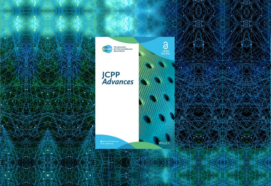Does the polygenic revolution herald a watershed in the study of GE interplay in developmental psychopathology? Some considerations for the Special Issue reader
Edward D. Barker, Barbara Maughan, Andrea Allegrini, Jean Baptiste Pingault and Edmund Sonuga-Barke
Abstract
The primary goal motivating the scientific field of Developmental Psychopathology is to discover why some individuals develop mental health and neuro-developmental difficulties while others do not. This is not simply a ‘blue skies’ preoccupation: the underlying hope, of course, is to translate such discoveries to the benefit of individuals, families and communities, reducing poor outcomes for those at risk and – in the best case scenario – ensuring that they thrive. A core tenet of the bio-psycho-social framework within which this field of enquiry operates is that children’s difficulties are determined by the interplay of predisposing genetic risk and resilience factors and the environments and experiences to which individuals are exposed. From this perspective, understanding gene–environment (GE) interplay is a necessary condition for explaining and, as importantly predicting, why one individual is at risk while another is not. If we believe this, then the risk calculators designed to show who will and will not get a particular disorder – all the rage at the moment – are doomed to fail until they can go beyond modelling the main effects of genes and environments, and reliably estimate GE processes too. Despite significant progress, we remain a considerable way off cracking this problem.
We hope you enjoy the full editorial of this Issue, which is free on the Wiley Online Library.
Edward D. Barker is a Professor of Development and Psychopathology at Kings College London
Barbara Maughan is a Professor of Developmental Epidemiology at Kings College London
Andrea Allegrini, University College London, Department of Clinical, Educational and Health Psychology
Jean Baptiste Pingault is a Professor of Developmental Psychopathology and Genetics at University College London
Edmund Sonuga-Barke is the Editor-in-Chief of JCPP, his full profile can be found here


